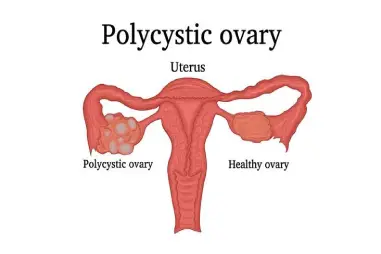PCOD/PCOS Treatment
PCOD/PCOS Treatment
Understanding PCOD/PCOS
Polycystic Ovary Syndrome (PCOS), also known as Polycystic Ovary Disease (PCOD), is a common hormonal disorder affecting women of reproductive age. It involves irregular menstrual cycles, excessive androgen levels, and polycystic ovaries. Early diagnosis and treatment can help manage symptoms and reduce the risk of long-term complications.
Symptoms of PCOD/PCOS
- Irregular periods: Infrequent, irregular, or prolonged menstrual cycles.
- Excess androgen: Elevated levels of male hormones can result in physical signs such as excess facial and body hair (hirsutism), severe acne, and male-pattern baldness.
- Polycystic ovaries: Enlarged ovaries containing numerous small fluid-filled sacs.

Causes of PCOD/PCOS
The exact cause of PCOD/PCOS is unknown, but several factors contribute to its development:
- Genetics: PCOS often runs in families.
- Insulin resistance: Many women with PCOS have insulin resistance, leading to higher insulin levels, which can increase androgen production.
- Inflammation: Higher levels of inflammation have been linked to higher androgen levels.
